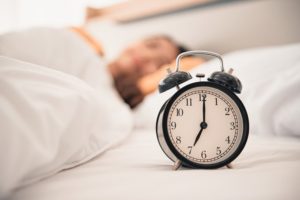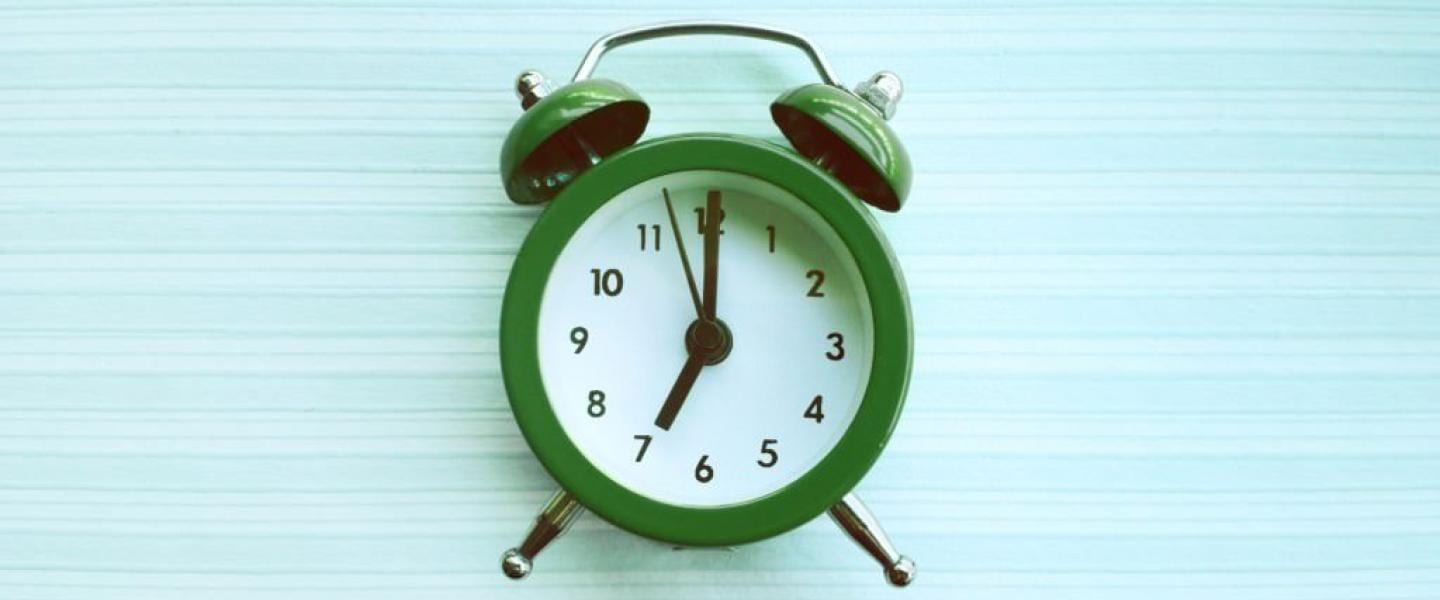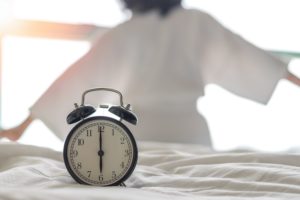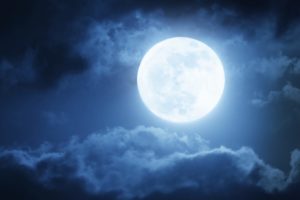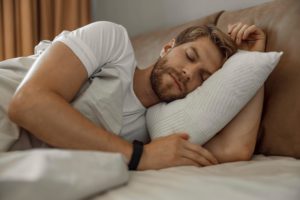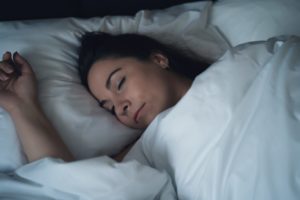When you buy through our links, we may earn a commission. Products or services may be offered by an affiliated entity. Learn more.
Alpha Waves and Sleep
Human brain activity changes as a person has different experiences while awake and as they move through the stages of sleep. Alpha waves are one of the many types of brain waves a person can experience. We explain what alpha waves are, how they compare to other brain waves, and how the presence of alpha waves during certain stages of sleep are associated with health problems.
What Are Alpha Waves?
Alpha waves are brain waves that fall between 8 and 13 hertz (Hz). Hertz measures the number of cycles a wave completes per second, with a cycle being the completion of a wave’s pattern. Waves have different forms, and each cycle includes the entirety of its form. Hertz is the number of times the wave cycles, or repeats, per second. Alpha activity is absent in 10 percent of people.
The human brain most commonly produces alpha waves when a person is awake but relaxed, with eyes closed. People often experience alpha waves just before they fall asleep. In normal sleep, alpha waves may be seen when a person briefly awakens. Alpha waves are also found in the back of the brain, in an area known as the occipital lobe, during rapid eye movement (REM), the stage of sleep most commonly associated with vivid dreaming.
Looking to improve your sleep? Try upgrading your mattress.
Other Brain Wave Activity During Sleep
In addition to alpha waves, many other brain waves occur during sleep:
- Beta waves: Beta waves are faster and the waves the human brain most commonly produces. The size, or amplitude, of beta waves generally increases as a person becomes tired and enters the first stage of sleep, then decreases as they enter the second and third sleep stages. Most sleeping pills increase both the amplitude and frequency of beta waves.
- Sleep spindles: Sleep spindles also occur during the second stage of sleep. These brain waves, also called “sigma waves,” can be either slow or fast. Some sleep medications increase the number of sleep spindles that occur during the sleep cycle.
- K-complexes: These sharp waves stand out from background brain wave patterns and last at least half a second. They appear during stage two sleep.
- Theta waves: Theta waves are slower brain waves that gradually replace alpha waves as a person transitions from a relaxed state to being asleep. They are most commonly seen during the first stage of sleep, which is the lightest sleep stage. They may also be seen during the second stage of sleep.
- Delta waves: Delta waves are the slowest brain waves and they primarily occur during deep sleep, the third stage of sleep. Deep sleep is also called slow-wave sleep, because of the presence of slow delta waves.
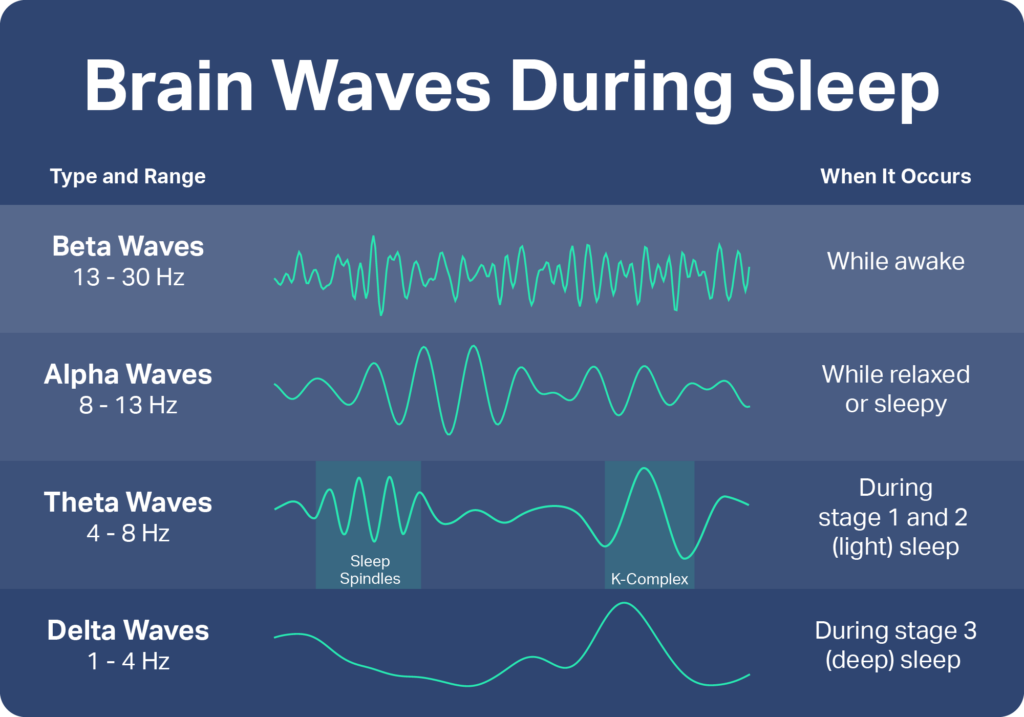
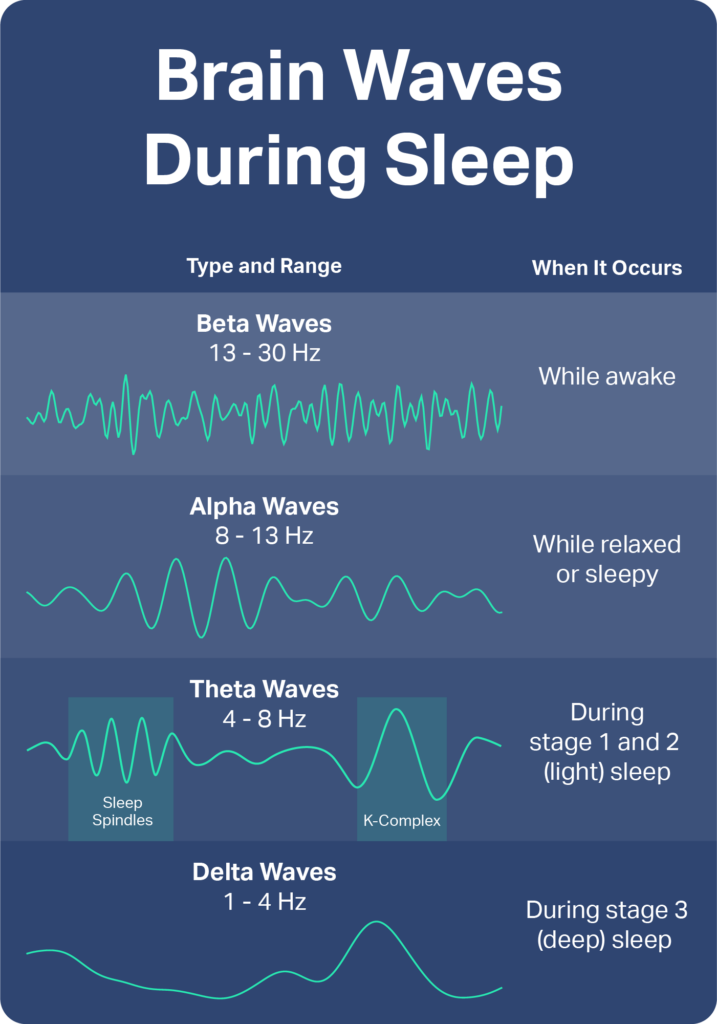
How Brain Waves Are Measured
Electroencephalography (EEG) is a technique used to measure brain waves. To measure brain waves with an EEG, technicians put electrodes on various parts of a person’s scalp. These electrodes measure how much electricity is produced by a great number of nearby nerve cells in the brain. An amplifier magnifies this electrical activity, so brain waves can be seen. Brain waves were once recorded on paper with ink, but now they are displayed digitally.
An EEG is a routine part of an in-lab sleep study, called polysomnography. A sleep study usually involves around 10 electrodes, which must be placed on both sides of the head, since sometimes each side produces different data.
How Do Alpha Waves Impact Sleep?
When alpha waves appear during sleep in parts of the brain or in sleep stages where they aren’t expected, they are called alpha intrusions, alpha bursts, or the ????-EEG anomaly. Alpha intrusions have been found to occur during deep sleep, stage two sleep, and in the front or mid-brain during REM sleep. Research has found that alpha intrusions can last for over 10 seconds.
Alpha-Delta Sleep
Alpha-delta sleep refers to alpha intrusions that occur during deep sleep, when there are usually primarily delta waves. Some experts think that alpha-delta sleep may be related to hypervigilance, which is a state of paying increased attention to the environment in order to be aware of potential threats.
Alpha intrusions have been found in healthy sleep, and possibly occur more frequently if you have a sleep disorder, including insomnia, obstructive sleep apnea, circadian rhythm sleep disorders, or narcolepsy.

Still have questions? Ask our community!
Join our Sleep Care Community — a trusted hub of product specialists, sleep health professionals, and people just like you. Whether you’re searching for the perfect mattress or need expert sleep advice, we’ve got you covered. Get personalized guidance from the experts who know sleep best.
References
6 Sources
-
Rezaei, M., Mohammadi, H., & Khazaie, H. (2019). Alpha-wave Characteristics in Psychophysiological Insomnia. Journal of medical signals and sensors, 9(4), 259–266.
https://pubmed.ncbi.nlm.nih.gov/31737555/ -
Kirsch, D. (2024 February). Stages and architecture of normal sleep. In S. Harding & A. Eichler (Ed.). UpToDate.
https://www.uptodate.com/contents/stages-and-architecture-of-normal-sleep -
Nayak, C. & Anilkumar, A. (2023, July 24). EEG Normal Waveforms. StatPearls.
https://www.ncbi.nlm.nih.gov/books/NBK539805/ -
Sloan, E. P., Maunder, R. G., Hunter, J. J., & Moldofsky, H. (2007). Insecure attachment is associated with the alpha-EEG anomaly during sleep. BioPsychoSocial medicine, 1, 20.
https://pubmed.ncbi.nlm.nih.gov/17976231/ -
Vijayan, S., Klerman, E. B., Adler, G. K., & Kopell, N. J. (2015). Thalamic mechanisms underlying alpha-delta sleep with implications for fibromyalgia. Journal of Neurophysiology, 114(3), 1923–1930.
https://pubmed.ncbi.nlm.nih.gov/26245315/ -
Kimble, M., Boxwala, M., Bean, W., Maletsky, K., Halper, J., Spollen, K., & Fleming, K. (2014). The impact of hypervigilance: evidence for a forward feedback loop. Journal of anxiety disorders, 28(2), 241–245.
https://pubmed.ncbi.nlm.nih.gov/24507631/



